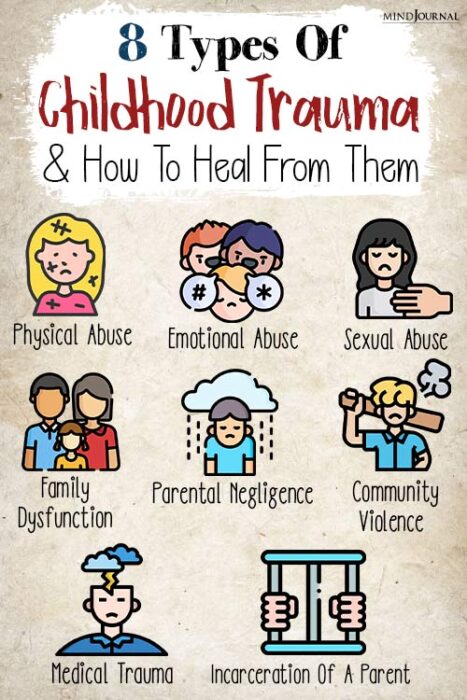A groundbreaking study conducted by Mayo Clinic researchers sheds light on the profound and lasting effects of childhood trauma on sexual function in women during their midlife years.
A groundbreaking study conducted by Mayo Clinic researchers sheds light on the profound and lasting effects of childhood trauma on sexual function in women during their midlife years.
The research, published in the Journal of Sexual Medicine, uncovers a troubling connection between childhood experiences and sexual inactivity, as well as sexual dysfunction later in life.
With one in three children facing stressful or traumatic childhood events, the implications of this study are far-reaching.

Read more here: 8 Types Of Childhood Trauma And How To Defeat And Heal From Them
The Hidden Impact Of Childhood Trauma On Sexual Function
Childhood trauma, often stemming from events like parents’ divorce or exposure to familial drug and alcohol problems, is distressingly common.
The National Survey of Children’s Health underscores that such experiences affect a significant portion of the population.
To understand the long-term ramifications, Mayo Clinic researchers delved into the lives of over 1,500 middle-aged women, ranging from 40 to 65 years old, with an average age of 53.
These women sought care at the Menopause and Women’s Sexual Health Clinic at Mayo Clinic’s Minnesota campus between 2015 and 2016.
Read more here: Can We Really Heal From Adverse Childhood Experiences?
Linking The Past To The Present
Participants were asked to complete a comprehensive survey before their clinic visits, detailing their history of adverse childhood experiences, sexual function, recent abuse, mental well-being, menopause symptoms, and relationship satisfaction.
This data was captured in the Data Registry on Experiences of Aging, Menopause, and Sexuality (DREAMS), an invaluable resource in women’s health research.
The researchers then meticulously examined the association between female sexual dysfunction and adverse childhood experiences, encompassing various forms of trauma experienced during childhood and adolescence.
The findings of the study were as alarming as they were enlightening. Women who reported four or more adverse childhood experiences were nearly twice as likely to be sexually inactive compared to those who had not faced childhood adversity.
Furthermore, these women were found to be twice as likely to experience sexual dysfunction in their midlife years.
The scope of female sexual dysfunction, which comprises issues like desire, arousal, lubrication, satisfaction, orgasm, and sexual pain, is extensive and profoundly affects personal well-being.
Read more here: Haunted By The Past: How Childhood Trauma Impacts Your Adult Relationships
Importantly, the study’s results remained consistent even after accounting for influential factors such as age, menopause status, hormone therapy usage, anxiety, depression, marital satisfaction, and recent abuse history.
This highlights the robustness of the observed association between adverse childhood experiences and sexual dysfunction.
Charting A Path Forward
Mariam Saadedine, M.D., a research fellow at Mayo Clinic in Florida and the study’s lead author, emphasized the significance of these findings.
She noted that this connection appears to be independent of other factors that often impact female sexual function. Sexual dysfunction can deeply affect a woman’s overall quality of life.
Given these revelations, healthcare providers are encouraged to screen women with sexual dysfunction for adverse childhood experiences, offering a holistic approach to treatment, including counseling as needed.
This study marks a significant step in understanding the intricate interplay between early trauma and sexual function in women.
However, Mayo Clinic researchers recognize the need to extend their investigations to encompass a more diverse group of women.
This expanded research will encompass those from lower socioeconomic backgrounds and those with limited access to health care, broadening the understanding of how childhood trauma impacts sexual well-being across different segments of the population.
The implications of this study are far-reaching. The impact of childhood trauma on sexual function underscores the importance of acknowledging and addressing such experiences.
By unraveling this complex connection, researchers offer a glimmer of hope for women who have faced adversity in their early years.
As science delves deeper into this intricate relationship, the medical community is better equipped to provide comprehensive care and intervention strategies that can improve the lives of women grappling with the consequences of childhood trauma.








Leave a Reply